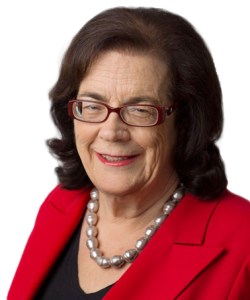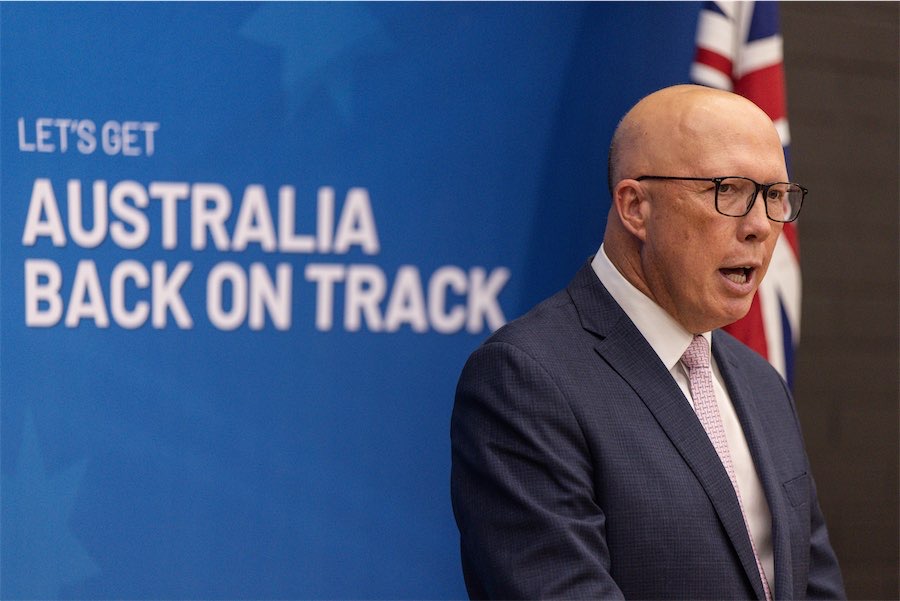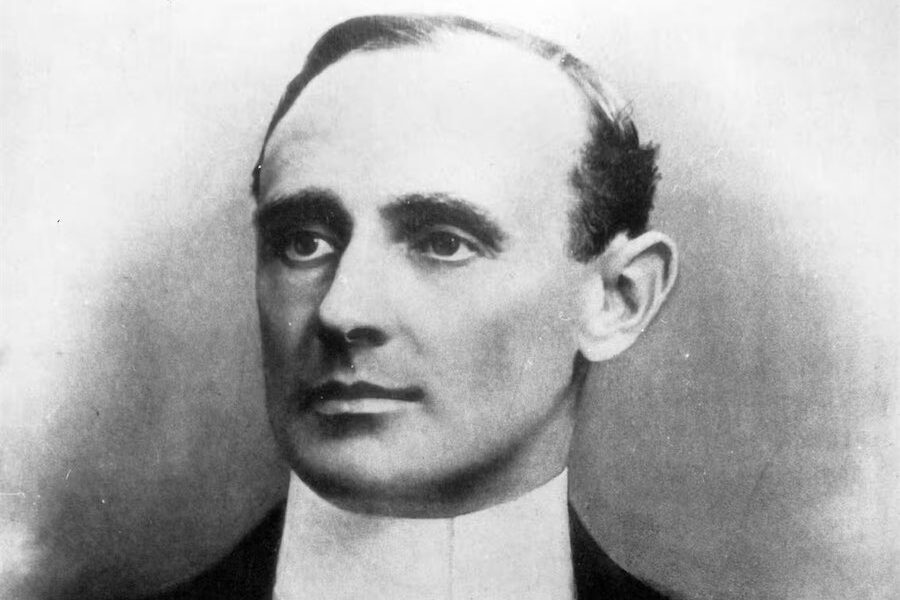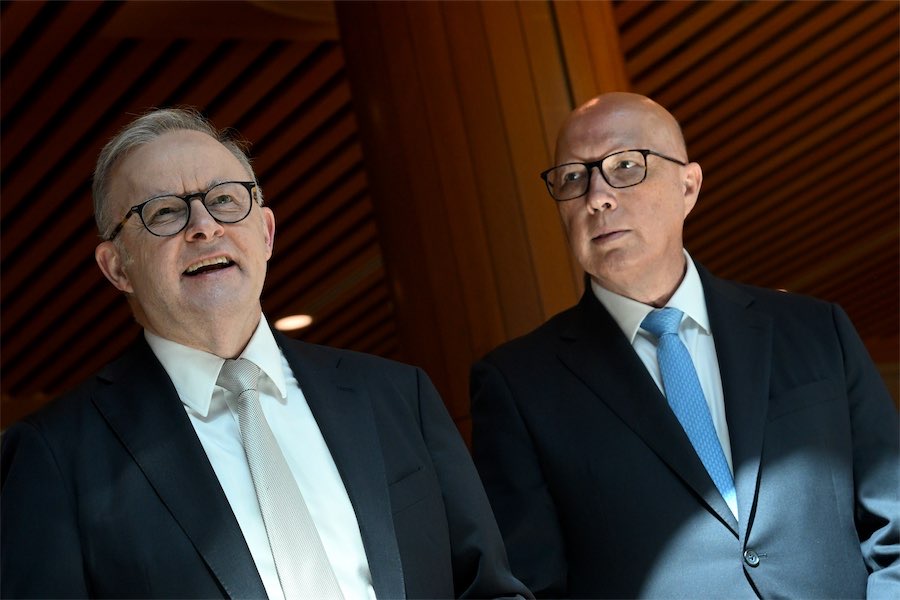The PM’s message that recalcitrant NSW Liberal Party members should “leave things to the professionals” is an insight into his penchant for control, writes political columnist MICHELLE GRATTAN.
SCOTT Morrison’s language was sharp, bordering on bullying. Asked on Wednesday about the preselection shambles in the NSW Liberal Party, his message was that recalcitrant party members should leave things to the professionals.

“It’s time for those who […] don’t do this [politics] for a living, to really allow those who really need to get on for the sake of the Australian people,” he told 2GB.
He found the “childish games” in his home state party “very frustrating”, said people should “forget their factional rubbish”, and threatened intervention by the Liberal federal executive to sort them out.
It was a revealing insight into Morrison’s penchant for control. In fact, leading players in the “childish games” have been his own numbers man, Immigration Minister Alex Hawke, and his political adviser, Yaron Finkelstein. They act on behalf of the PM, who is a former director of the state party.
Morrison’s centre right faction, wedged between the right and the left, is in a minority in the NSW division. It has been seeking to increase its clout via preselections. But it has run into heavy resistance, because the state division recently fought a long battle to enable ordinary party members to exercise their right to choose candidates.
As a result of the shemozzle, there’s presently a standoff over whether Hawke, Environment Minister Sussan Ley and backbencher Trent Zimmerman should face preselection ballots or just be automatically endorsed.
The issue of principle is whether the party should let the rank and file have plebiscites, reserving the option of overturning any egregious decisions, or deny rank-and-file participation in the first place.
A proposal put by state president Philip Ruddock this week to have the executive rubber stamp the three was overwhelmingly defeated, with left and right aligned against the Morrison group.
Infighting and delays have also left key battleground seats without candidates as the May election bears down – including Hughes, Warringah, Dobell and Parramatta. An attempt by Morrison to get a Pentacostal woman preacher as the Dobell candidate blew up.
Morrison also failed to attract Gladys Berejiklian to run for Warringah. If he had prevailed it would have been beyond embarrassing when the text messages that had her describing him as a “horrible, horrible person” came out this week.
Senior NSW Liberals accuse Hawke, Morrison’s representative on the state executive, of holding up preselections for many months by making himself unavailable to participate in the group that vets preselection candidates. In effect, this has run down the clock, which renders rank-and-file ballot more difficult.
Morrison raised the question of intervention with the federal executive in November.
A powerful player on the federal executive is Nick Minchin, a former Senate leader in the Howard government and, like Morrison, a one-time state director (in South Australia). Minchin told the meeting intervention would be most unwise.
Minchin is both astute and tough. He was involved in the drafting of the rules for federal intervention some years ago, and they have many hurdles. If Morrison now tried to get full intervention he mightn’t succeed. Probably the best he would achieve would be some sort of exhortation from the federal executive.
The ugly entrails of the NSW Liberals may be arcane to ordinary voters struggling with the pandemic crisis and all its consequences. But they say a good deal about the PM, his political style and his present position.
Morrison’s activism reflects his personality, his experience from his state director days, and the fact that for various reasons, including bitter hatreds and structural problems, the NSW organisation is leaderless.
His faction’s push on preselections is against democracy in the party. It has also operated, as it’s turned out, against Morrison’s own interests, because it has left the Liberals badly prepared in a state where, on present calculations, they need to win – not just retain – seats to stay in government.
At the last election, Morrison’s meddling in preselections did not end well. He saved Craig Kelly, who later defected, became a vocal anti-vaxxer and is now the nominal leader of Clive Palmer’s United Australia Party.
He made the captain’s pick of Warren Mundine, one-time national president of the Labor Party, as the candidate in Gilmore, a seat the Liberals should have won but didn’t.
The NSW imbroglio will have to be resolved quickly. Morrison risks coming coming out either with a bleeding nose or a very antsy party rank and file.
It’s not the only no-win situation the PM faces imminently. He has to decide the ministerial future of Education Minister Alan Tudge, presumably by the time parliament meets on Tuesday for what is expected to be a bruising fortnight for the government.
Tudge’s former lover Rachelle Miller has accused him of violence towards her – kicking her out of bed – when she worked for him. He denied the claim but stood aside from his ministerial duties while an inquiry was conducted.
We don’t know the investigation’s finding but Miller last week, speaking to the ABC, predicted the report of Vivienne Thom would “say what we all know it is going to say, which is that the outcome is inconclusive”.
Unless Tudge is fully exonerated his restoration to his position would be controversial.
And for Morrison the timing is dreadful. On Wednesday Grace Tame, former Australian of the Year, and Brittany Higgins, whose allegation of being raped in a minister’s office fuelled a massive debate about the culture at Parliament House, will appear at the National Press Club.
They are likely to be brutal in their assessment of Morrison and his government.
Tame’s stony face at a pre-Australia Day function at The Lodge last week received blanket coverage. Next week’s joint appearance will be a major media event.
Morrison struggles with women’s issues – one Liberal says, “it’s like me with the foxtrot, he never knows where to put his feet” – and there is little sign he will get any better. This has turned into irretrievable ground for him.
What we don’t know is the extent to which these issues, and Morrison’s reaction to them, will drive the votes of a significant number of women.![]()
Michelle Grattan is a Professorial Fellow at the University of Canberra. This article was originally published on The Conversation.
Who can be trusted?
In a world of spin and confusion, there’s never been a more important time to support independent journalism in Canberra.
If you trust our work online and want to enforce the power of independent voices, I invite you to make a small contribution.
Every dollar of support is invested back into our journalism to help keep citynews.com.au strong and free.
Thank you,
Ian Meikle, editor




Leave a Reply